Quick Facts on Sheida Mohamadi
Home: Monterey, California
Top reads: My favorite books and authors change all the time because they depend on my mood, the books that I am reading, and my own writing. However, there are authors whom I admire and enjoy regardless: Rumi, Hafiz, Omar Khayyam, Charles Bukowski, Sylvia Plath, Milan Kundera, Jorge Luis Borges, Forough Farrokhzad. My favorite books include modern collections of poems, and The Little Prince by Antoine de Saint-Exupéry.
Current reads: The Best Poems of the English Language by Harold Bloom
What are you working on at the moment ?
I have suspended the publication of my fourth literary work, a collection of poems, for two reasons: The first is that I am still in the process of editing it, something that I haven’t really done before with my other works. I want to make sure to get the best result. Secondly, I haven’t been able to find the publisher I want. This book cannot be published in Iran due to its erotic content, and also because of its feminist undertone. A couple of literary houses in Iran offered to publish it a few years ago, but they later chickened out for political reasons, in the wake of the massive crackdown on free speech that followed the disputed 2009 presidential election in Iran. Since then, most independent publishers have gone out of business or slipped underground. In the present climate, no one is willing to take the risk of publishing such a controversial book that deals with the taboo subject of sex.
Moreover, I’m reluctant to have the work published only outside Iran because I would not gain as wide a readership. So I am in a state of limbo now, until I finally make a decision about publication.
What would it mean to publish your work under censorship ?
An interested publisher has asked me to revise the book manuscript and let some poems go because they can’t get permission to publish the collection as is. I have to wait and see for sure how many poems or lines the potential publisher wants to delete. I know myself, and if they want to make big changes, I’d prefer not to publish my poems yet.
What kinds of poems are you being asked to remove from the book ?
The poems that have erotic imagery or talk about societal issues. Anything about the woman’s body, or if the poem explains or imagines lovemaking. It seems with anything that comes from love or femininity they’ve asked me to change the point of view, the narrator, or how it reads. Those topics are seen as too dangerous, and the publisher cannot get approval to print these things. But for me, love is everything. Without love, life is empty.
Do you believe writing can affect change ?
Yes, I believe literature is important and can change people. Right now in Iranian universities and schools, the government has cut classical poetry with even mild themes of erotic love from the curriculum. I think it’s because they are afraid of a literature that liberates. Poetry can be revolutionary—think of the Beat Generation poets in the city of San Francisco. The literature of every country is what makes the culture of that country.
Over time, how do you feel the threat of censorship has changed your work ?
When I lived and worked in Tehran they censored all of my work—my short stories, my novel, my poems. But I kept writing. When I came to the US, I felt freer. That’s why in my first poetry collection most of my poems are feminine, erotic, and socially conscious. I don’t care about making political judgment. I write the things I feel strongly about. This is something that I owe to my parents. Both my parents are very open-minded, and they taught me and my sister to be strong and independent-minded. They shielded us against the prejudices of our society, a society that teaches children from early on that female is the inferior sex. But millions of other girls in that country are not so lucky.
Do you have a philosophy for how and why you write ?
There is a thought behind every piece of writing and that is something that gives impetus to the author. What looms large in my work is the woman. I come from a land where being a woman is in itself a liability. It is the censored gender, conveniently repressed. The laws of this land openly seek to hollow women out of their spirit, and mold them into obedient matrons.
In general, every poem I write springs from my subconscious mind. It happens in a flash and then suddenly goes dark. More often than not I try to reconnect with that mystical moment, but it cannot be done through conscious effort. It is hard to go back and find the poet Sheida and her mood in that fleeting moment. For me, it is a third world, somewhere between the inner and outer world. I do not make conscious decisions what to write about, even if it deals with some social or political issue that preoccupies me—famine and starvation in Africa, the massacre of children and innocent people in wars, or the plight of women in the Third World. For me, poetry is about pain and longing. The two together make a recipe for that delicate moment when I become overwhelmed with the need to write.
When and why did you leave Iran ?
I left Iran in 2003 and came to the US in 2004; and I have not been able to go back ever since. My name is on the blacklist as a result of my journalism. When I started my career as a journalist, I discovered that my passion was with Iranian women’s trampled rights. I especially felt for runaway young girls from the countryside. They fled their oppressive small town lives in search of a dream, but most ended up on the street and eventually dead, either from murder or suicide. These were the subjects that I was interested in, and that’s why I decided to become an investigative journalist. But the Islamic republic is not a place for that kind of thing. I was thrown out of one newspaper after another for trying to write about these women, and eventually had to flee the country.
Before I left Iran, when I was publishing those stories about abused women, the censorship department of the culture ministry called me three times, seeking an explanation for my work. One day, I arrived at my office and found all of my things packed and stacked up by the elevator. When I asked what was going on, nobody would tell me anything. Finally, at the end of the day I was told, “We don’t need a women’s page anymore.”
Anonymous people from the government even called some fellow journalists to ask about me. They warned if I continued to publish my articles my family would find my dead body out in a forest. I was seriously alarmed. At that time my sister was living in London, and she was able to get a visa for me to visit, thinking it would be a good idea for me to leave Iran for something like three weeks, and then when things quieted down I would go back. So I left in a hurry, without even saying goodbye to my family or my friends, not knowing I wouldn’t be able to return. The pain of separation was too much, and it was only two months ago when my parents were finally able to get a visa to come and visit me in the US.
What do you hope readers will take away from your work ?
I believe poetry is for enjoyment. It is meant to induce a deep inner pleasure in the reader, and uplift their spirit. It has the potential to awaken a previously unknown, novel feeling in the reader—a feeling of love, pain, loss, or whatever it is that prods one to action. For me, reading a good poem is always marked with a new dawn, a great sense of satisfaction.
Who do you picture as the ideal reader of your work ?
There was a time when I had a limited readership among merely the literati, but now my poems are reaching a wider audience. When a poem comes out, it takes its own independent identity and I, as the poet, like to stand back and watch how it affects the reader.
What is the translation process like from Farsi to English ?
Poetry, like jokes, does not cross over. Poetry is the most condensed expression of a land, pulsating with all its music, color, and cultural nuances. It is tough to bring off this whole experience in a new tongue. When I write, for example:
My husband
who is the husband of the world’s roofs
every night sleeps with the sky at the
other end
of my window
and in the morning
spreads the smell of onion, perfume and
my roommate
My husband
whose understanding of Islam only is
its four wives
and from Judaism, Men’s left rib
and from Christ
the purity of the virgin
for all of the neighboring women
elementary school friends
and my office co-workers
he has full attention
devotes time
and talks about the beauty of their eyes
and breasts
and every time he shakes the leftovers
above my head
He says :
“This Spring, you need to be with child!”
This draws upon the native culture of a land where a woman is prone to be humiliated for her infertility by allowing her husband to take more wives.
But sometimes poetry can be universal, like:
Nothing matters outside this flowerpot
Not the brushfire in Malibu
Neither the slogans on the walls of Kandahar
Nor the sizzling corpses of Bagdad
Oh my love!
If the meaning comes through translation accurately, do you mind if the sounds are different? How much do you worry about translating the music of your work ?
The sounds of the lines and the music are a translation problem. I use a lot of sounds together on purpose, and with repetition, so they sound pleasing in Farsi. It creates internal rhyme. Sometimes I include sounds that aren’t really words, but are a commonly understood sound or song in Iran, and there isn’t necessarily an equivalent in English. It’s hard to recreate that part of the experience of the poem in another language and get the exact meaning in the translation. Here’s an example of one poem in English and in Farsi:
The sun moves slant (Poem by Sheida Mohamadi, Translated by Sholeh Wolpe)
Too late now,
too late to undo your buttons
and let loose my liquid blue fingers
on your chest,
to turn the lock in my throat
and hear the halla halla halla
of your coming
from among apples and lemons.
Your shadow moves slant through mine.
Why is it that your kisses no longer leave
their mark on my purple dress?
Why is it that your body’s tangerines
no longer swell from sucking my breasts?
Your voice no longer sends frogs
crrrrrrrrrrrroaking along my thighs.
Now, each time your voice grows cold-blue,
you snuff out your cigarette in my eyes
and half the clock’s circle face
sinks to sleep in the ashes of my hair.
“رفتن اریب آفتاب”
دیگر دیر است
برای باز کردن دکمه هایت
و خنده انگشتان آبی ام بر سینه تو
و چرخیدن قفل
در حنجره من
و هلا هلا هلا
در آمدن میان لیمو و سیب ها
و سایه ات که
اریب می رود از سایه من.
چرا دیگر بوسه ات بر پیراهن بنفشم لک نمی اندازد؟
و نارنجی های تنت ازمکیدن پستانهایم
باد نمی کند ؟
دیگر صدایت
قورباغه ها را در ران هایم غو غو غو غوک نمی…
حالا هر وقت
صدایت کبود شود
سیگارت را در چشمان من خاموش می کنی
و نیم دایره ساعت
در خاکستر موهایم
به خواب می رود.
“شیدا محمدی”
نوامبر 2006
For now, I think maybe the mood and meaning of the poem is more important to me in translation than the exact words or poetic language. But it is hard to sacrifice one for the other. This is a difficult issue for me; I have heard some people say that a bad translation can be worse than not being translated because it can generate a false reputation for my work. People may not want to read my work if the translation is poor or ineffective.
Do you ever write poems or stories in English first ?
No, only some haikus in English.
Where and when do you prefer to write ?
I don’t like to be grounded. I like to be always on the move, to explore and make new discoveries; and my best writings come out when I am mobile. My mind is more fluid when I’m on the move, whether driving, flying, or riding in a train. I have composed many of my poems while driving. But I also must have my privacy, and it is in my room that I feel most at peace.
Where would you most want to live and write ?
As I said, I am a gypsy girl. If I stay in one place for too long, I get bored. I prefer to travel. Moving has helped me to write a lot of poems. But, I would love to live in a place with a mix of Eastern and Western cultures, the best of the two worlds.
What advice would you give to aspiring writers ?
Just as I am not a follower, I do not like to have a cult of followers. I just tell aspiring writers to follow their dreams and their hearts, and to also be aware that creative writing is a painful process.
What is the best advice you were given as a writer ?
To edit my work before submitting it for publication.
Is there a question you find surprising that people ask about your work ?
What used to surprise me and doesn’t anymore is that many of my readers mistake the poet with the narrator; and since my work contains erotic elements, something that Iranians’ puritanical mindset is not used to, they often become shocked by the directness of my language. There have been few erotic works in Persian literature and almost none by a woman until Forough Farrokhzad broke big taboos with her daring poems back in the sixties. It was an exercise in rebellion by a free spirit feeling suffocated in a deeply traditional and male-oriented culture, a society where women were assigned a set role to play and were not allowed any spontaneity.
For me as well, erotic poems are an attempt to break free, and reveal that restless side of my soul. I want to freely express myself, and if I end up shocking or angering some prudes, then let it be.
What do you find most challenging about writing ?
Finding the discipline to write.
When you are not writing what do you like to do ?
I live.
About Sheida Mohamadi
Sheida Mohamadi is a journalist, poet, and writer of fiction born in Tehran, Iran in 1975. While living in Tehran, Sheida edited and wrote for the women’s page (Safheh-ye Zanan) at Iran newspaper in 2002–2003, and at Farhangestan‑e Honar Monthly Review in 2003. She published her first book, a work of poetic prose titled Mahtab Delash ra Goshud, Banu! (The Moonlight Opened its Heart, Lady!) in 2001, and her second book, a novel titled Afsaneh-ye Baba Leila (The Legend of Baba Leila) in 2005. Her third book was Aks‑e Fowri-ye Eshqbazi (The Snapshot of Lovemaking), a collection of poems published underground in Iran in 2007. In 2010, Sheida Mohamadi was a Poet-in Residence at the University of Maryland. Her poems have been translated into different languages, including English, French, Turkish, Kurdish and Swedish. She has lived in the US since 2004, and continues to maintain her weblog, www.sheidamohamadi.com, which she launched in 2001.
Source
Toffoli, Marissa Bell. “Interview With Writer Sheida Mohamadi.” Words With Writers (August 24, 2011),
http://wordswithwriters.com/2011/08/24/sheida-mohamadi/
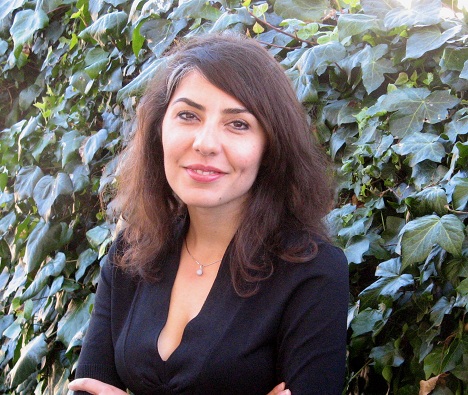


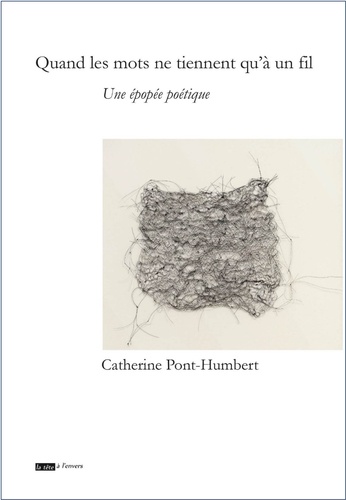
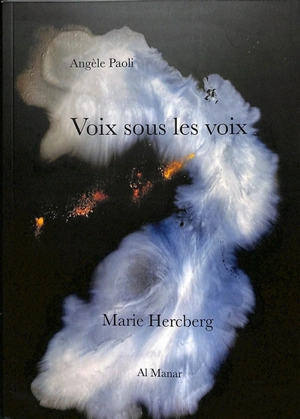
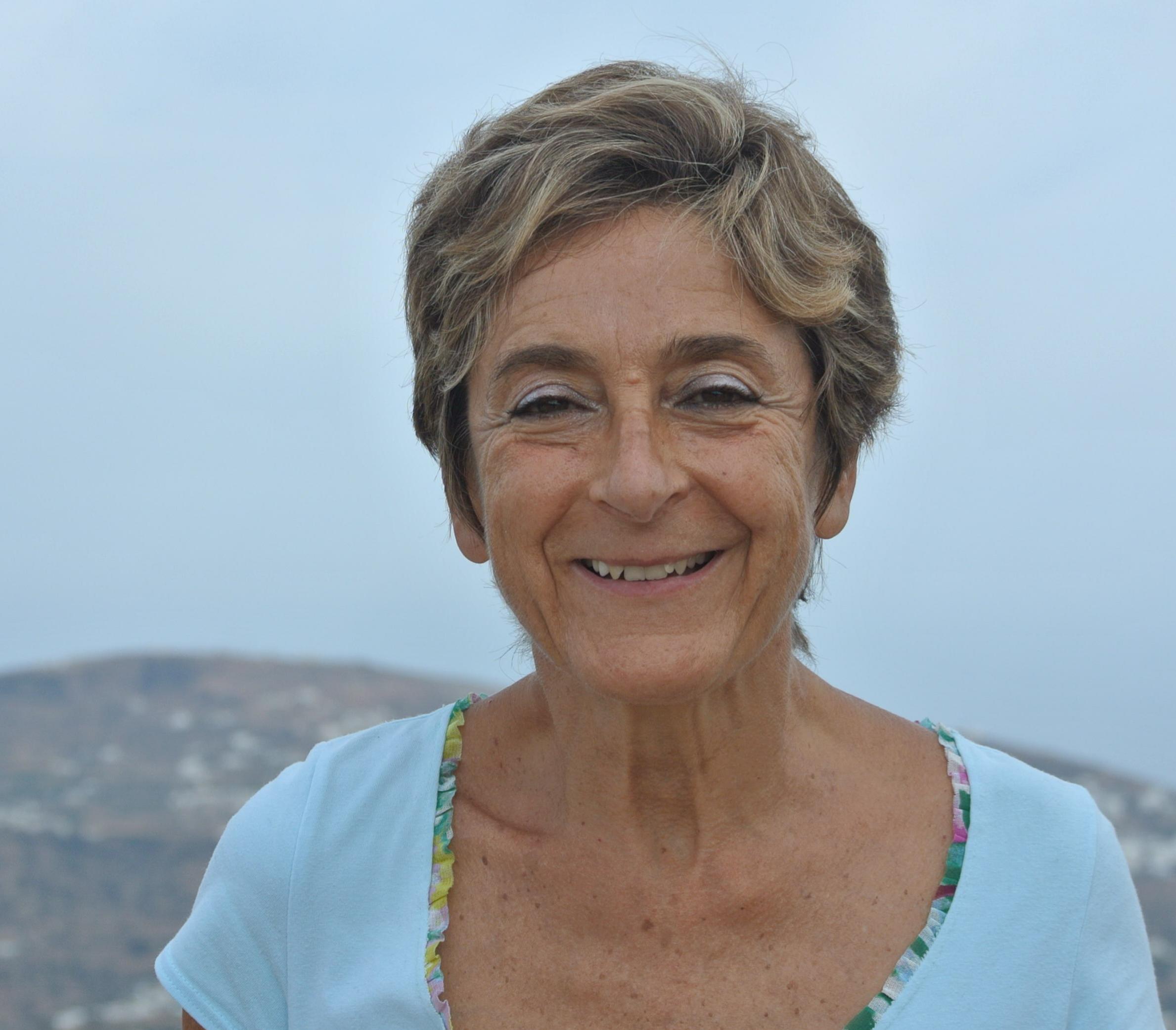
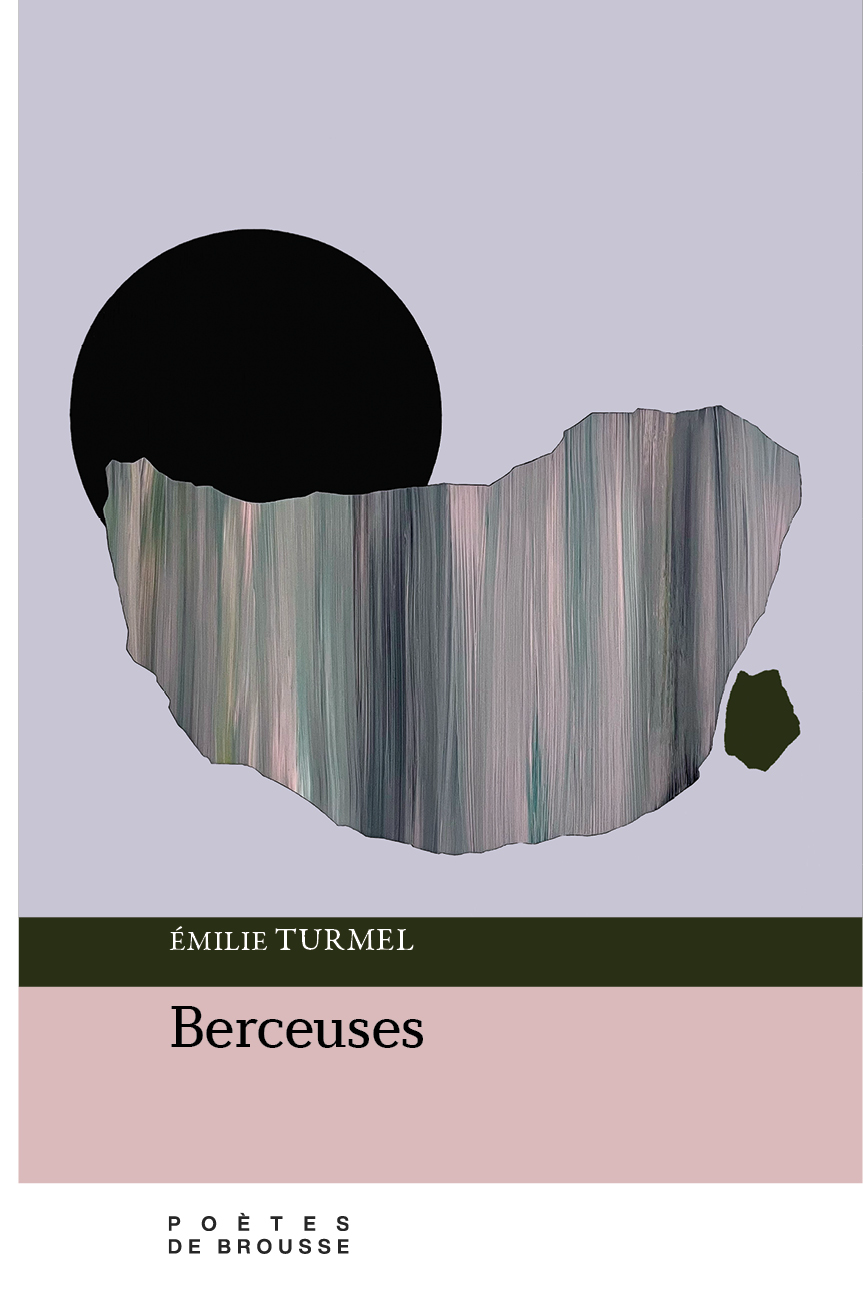
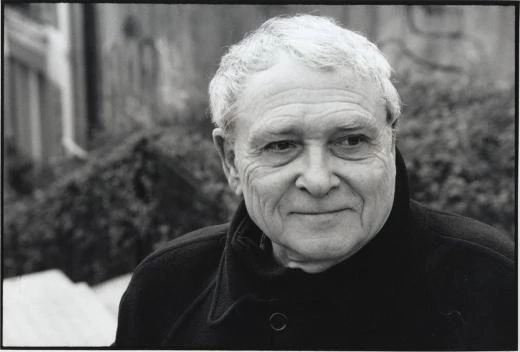

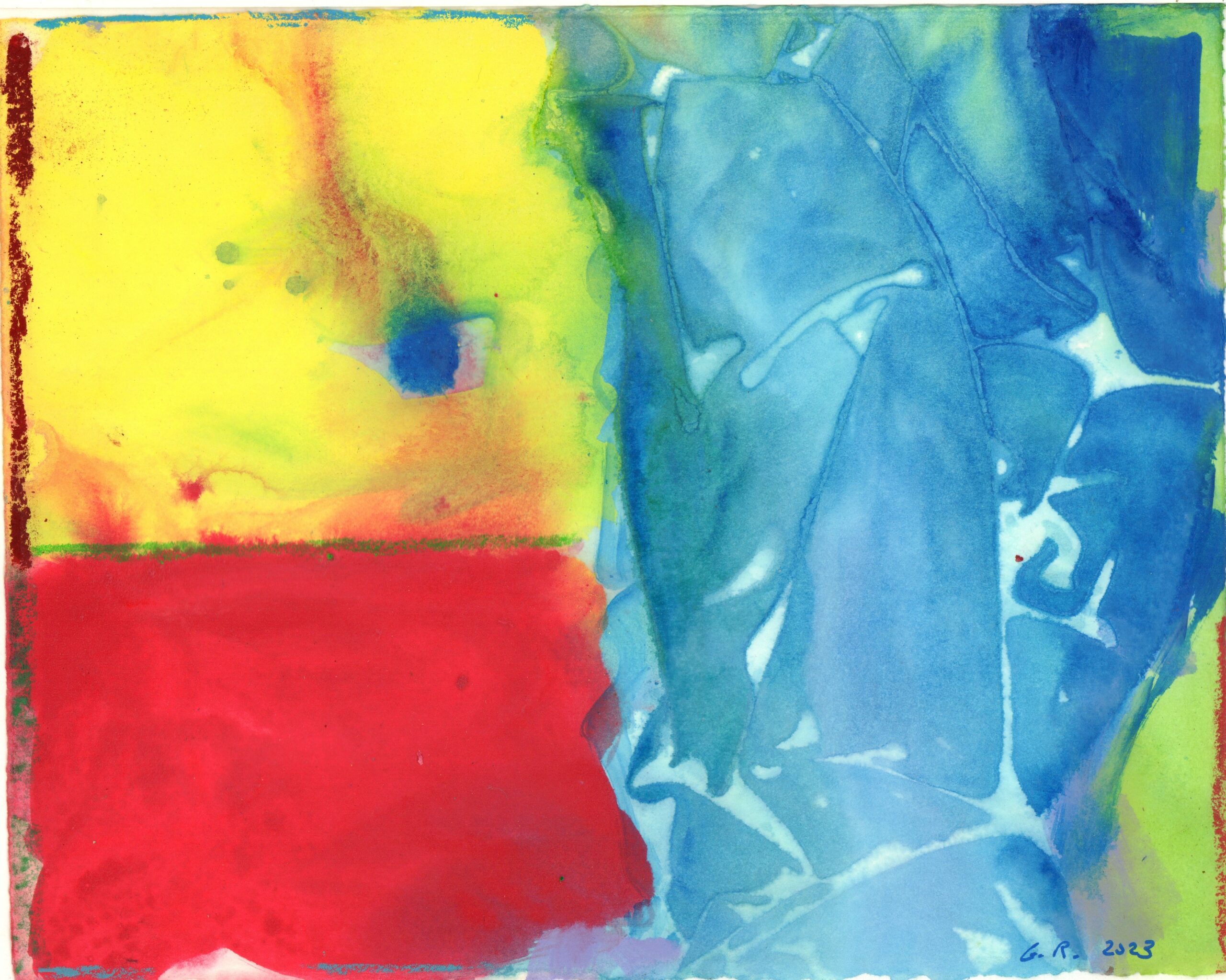
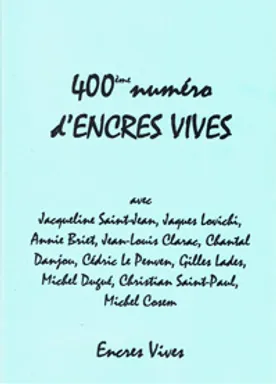

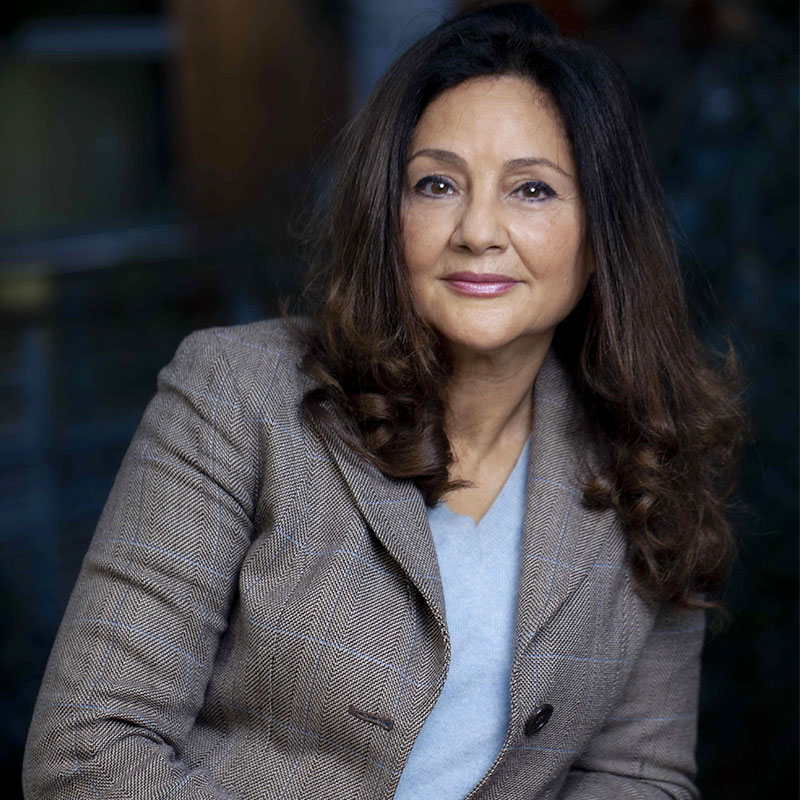
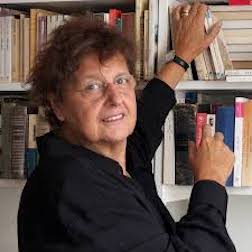
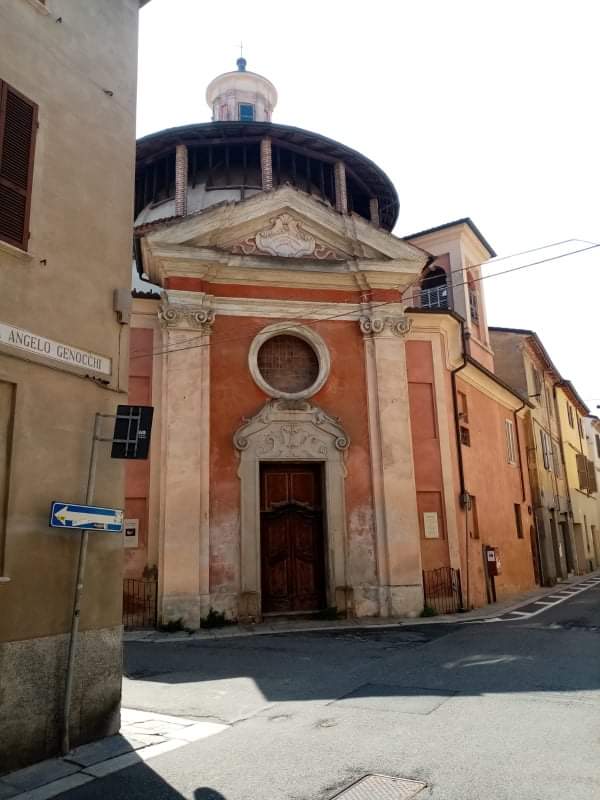
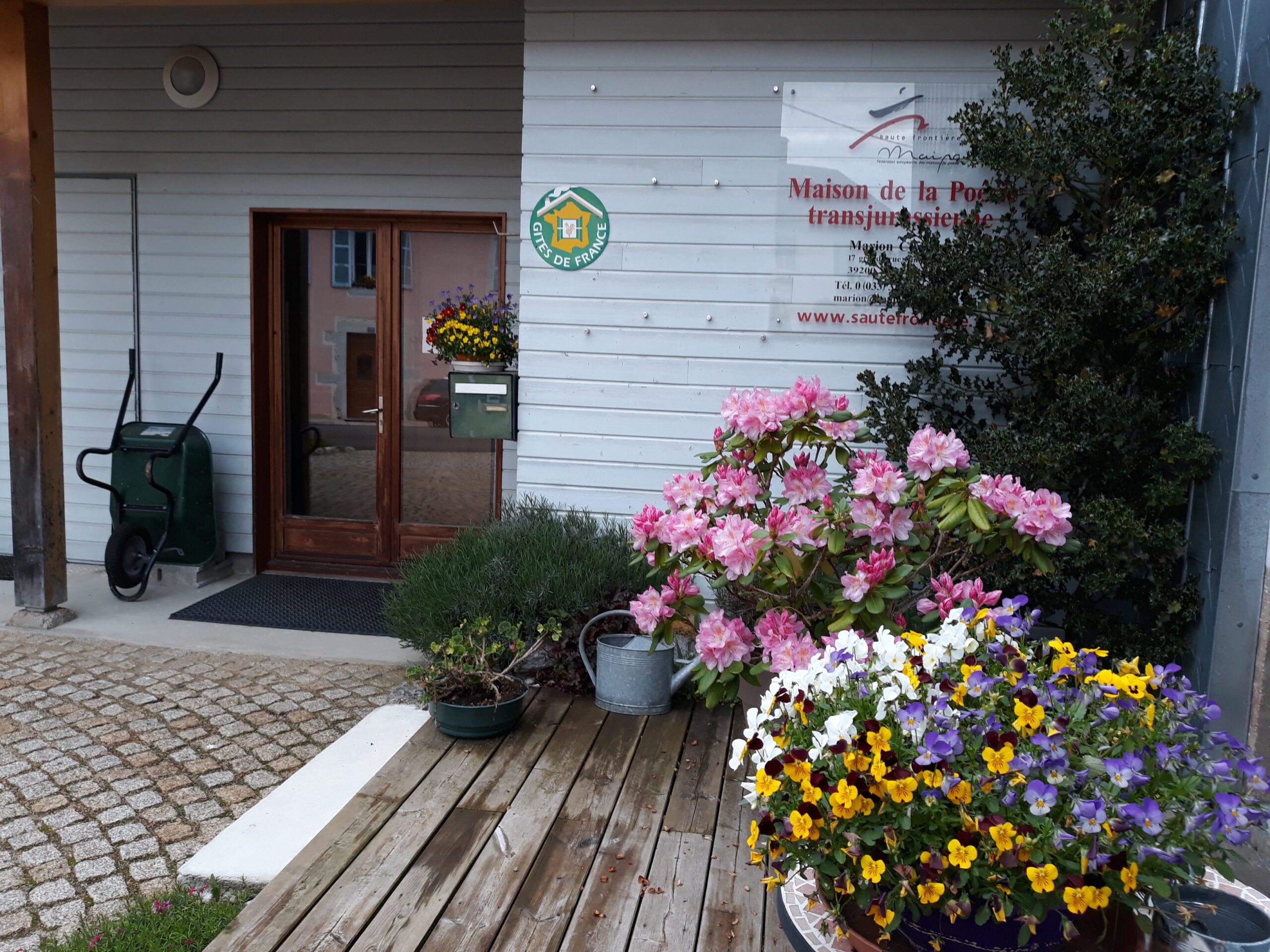

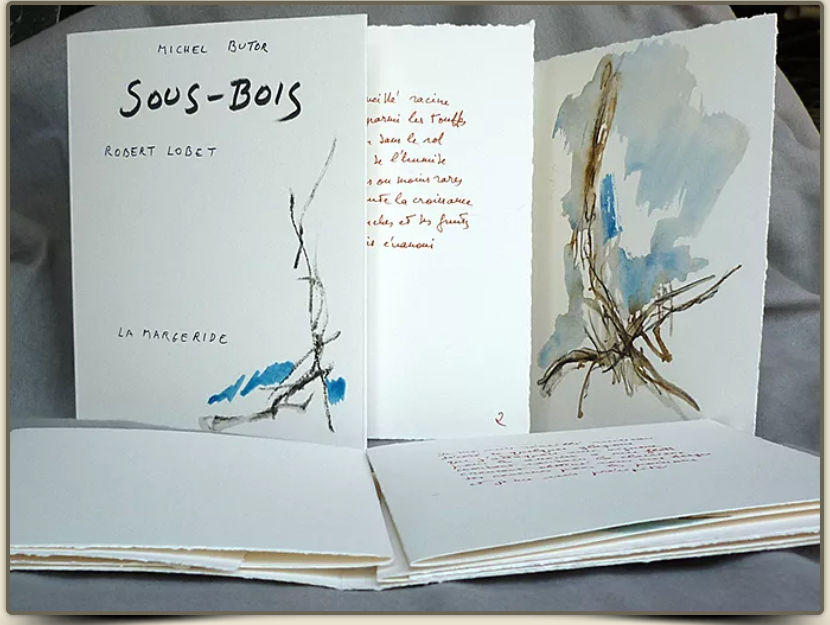
Laisser un commentaire